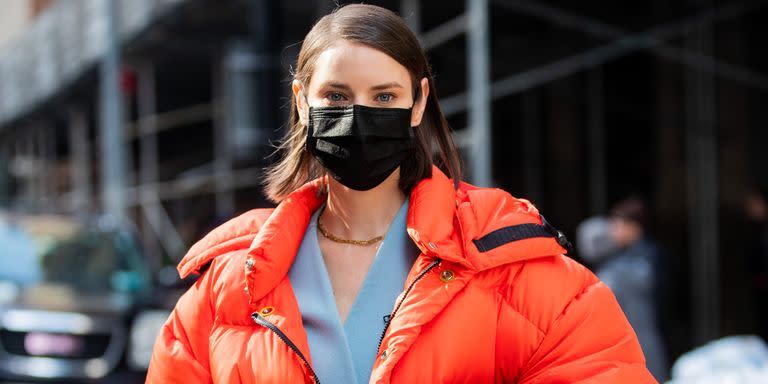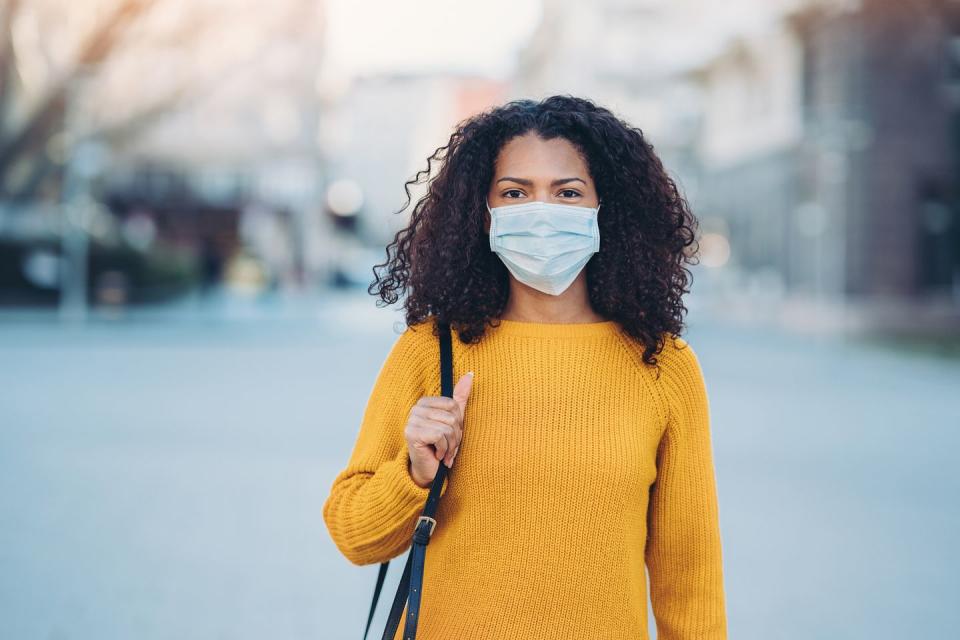Are future pandemics likely, unless we re-think the way we live?

Recently, four academics argued that future pandemics are likely, unless we radically overhaul how we relate to wildlife and the environment. These future outbreaks could happen more frequently, spread more rapidly and kill more people than Covid-19, they claimed.
"Rampant deforestation, uncontrolled expansion of agriculture, intensive farming, mining and infrastructure development, as well as the exploitation of wild species, have created a ‘perfect storm’ for the spillover of diseases from wildlife to people," they wrote.
"Yet this may be only the beginning. Although animal-to-human diseases already cause an estimated 700,000 deaths each year, the potential for future pandemics is vast. As many as 1.7 million unidentified viruses of the type known to infect people are believed to still exist in mammals and water birds. Any one of these could be the next ‘Disease X’ – potentially even more disruptive and lethal than Covid-19."
The piece, titled Covid-19 Stimulus Measures Must Save Lives, Protect Livelihoods, and Safeguard Nature to Reduce the Risk of Future Pandemics, was published in The Intergovernmental Science-Policy Platform on Biodiversity and Ecosystem Services (IPBES) and was swiftly picked up by the international press.
The stance taken is especially foreboding. But this band are not the only set prophesying a grim future. A study published in April by Stanford University said that viruses which flit from animal to human – with grave consequences – "will likely become more common as people continue to transform natural habitats into agricultural land".
The truth that living in such an interconnected world means that any virus that does burrow into our population has wings, is also significant. As we've seen, hitching a ride from, say, Latin America to New Zealand via a human host within a day is easy, for any novel infection.
So, what should we make of this terrifying prognosis? Two experts share their thoughts:
Dr Manuela Gonzalez-Suarez, lecturer in ecological modelling at the University of Reading
Prof Chris D. Thomas, a biology professor at the University of York and Director of the transdisciplinary Leverhulme Centre for Anthropocene Biodiversity

Some experts say that human activity, like deforestation and intensive farming, created a ‘perfect storm’ for the novel coronavirus to spill over to people…
Dr Manuela Gonzalez-Suarez: There’s clearly a link. The probable origin of the virus is that a pathogen jumped from a species that we’ve come into contact with to humans. If we change habitats [by example, via deforestation] where wildlife live and then come into contact with them – perhaps we kill them for fur, feathers or horns, or for meat – we are being further exposed to animals carrying viruses, and so up our chances of contracting these diseases.
It’s also true that by changing natural habits we might allow other species to come into contact with one another. This means that they could transmit pathogens, which then mutate and evolve into a new disease that would not otherwise have occurred. We could then be exposed to this, later.
Prof Chris D Thompson: The specific origin of Covid-19 is not yet known exactly, and simply listing all of the things that humans are doing on the planet (use of resources, agriculture, human infrastructure) is not particularly useful. We need to eat, and we need places to live and we need to assess where each disease has come from if we wish to identify challenges for the future.
Most recent – by which I mean in the last 120 years – zoonoses (diseases emerging from animals) have come from domestic or farmed animals, rather than wild ones.
This includes various flu strains and Middle East respiratory syndrome coronavirus (MERs) from camels – whereas Ebola seems to originate from direct contact with wild animals. Of course, it is messy. Domestic animals can exchange diseases with wild animals. Go back earlier, and the Black Death came from human-wild animal contact, so I am not certain that people are putting this in proper historical context.
It's been said that the ‘potential for future pandemics is vast’, again, thanks to the human activity mentioned…
MGS: I think it's a good point, but, we need to be careful. There is a risk of making people fearful in a way that's not productive. Pandemics have occurred throughout human history. What some experts want to highlight is that another pandemic could well happen again – and that we should do what we can to prevent it. This includes things like proper regulation of the wildlife trade.
It's true, though, that pandemics could still happen even if we behaved perfectly. Their point is that there are some actions we have taken which have increased our risk of catching this virus – and could increase our risk of catching further viruses.
CT: It's true that human choices will affect what happens in the future, but not in the ways which were emphasised in the IPBES article. In terms of how frequently an animal-sourced disease establishes somewhere, regulation of the animal trade, such as sourcing, hygiene during production, and consumption – and enforcement, ensuring that proper regulation happens – are key. [This would mean that the outbreak of a disease could be traced back to its source, and so the animal in question could be removed from the market, and that a diseased animal would be less likely to enter the market, in the first instance.]
Pandemics will spread faster because of increased transport, i.e. the fact that humans fly so frequently, and can so spread infection rapidly – not because of deforestation somewhere.
As a biologist, I certainly think we should recognise that new diseases can and will come from wild animals, but the challenge is to identify the specific pinch points – what can we change that will make the most difference?

How does global travel tie into pandemics?
MGS: The issue with global air travel is that the risk of human-to-human infection becomes a lot bigger. We move across larger distances more often and so the virus travels from one location to another very quickly – in 24 hours it could be on other side of the world. That’s how the novel coronavirus spread so quickly.
CT: In terms of what's happened with this pandemic, as opposed to historical ones, two things are different. One, the total human population size and two, travel. The number of humans on the planet is now much greater and thus the total number of interactions between people and animals (wild and domestic) - as well as hygiene standards - is linked to the number of infections that might take hold.
A new disease that might historically have flared up locally in a small community for a few weeks and died out can now be around the world in days, infecting swathes of people. In my opinion, increased global transport is likely to be the number one cause of any recent acceleration of animal-sourced disease transmission, by some distance.
What might a more ‘ecologically friendly’ future look like?
MGS: Trying to be as sustainable as possible – whatever we take needs to be replenished in sufficient time. One part of this is not taking resources that will be exhausted quickly, so, renewable energy is obviously better than fossil fuels. But, overall, we need to think about using less energy, so we can we live in a way that uses less resource.
On an individual level, try a diet that’s less meat-heavy: maybe vegan, or more locally-produced plant-based food. At government level, this could be incentivised.
We all love to travel. But, we need to think about how far we go, and how often. Can we think about taking fewer holidays, or holidays that do not need long-distance travel and do not cause as much impact? Of course, it’s not always simple because a lot of countries are protecting biodiversity via tourism money. There are a lot of big questions here.
CT: An ecologically-friendly future would decouple the things we want (such as energy, meat – unless we all go veggie – from the deleterious side effects in their production (CO2 and land to keep and feed livestock, respectively). Factory-grown meat and other novel protein production systems might be the way to go to ensure that we need less land to feed humans in future than we need at present.
Disclaimer: The information in this story is accurate as of the publication date. While we are attempting to keep our content as up-to-date as possible, the situation surrounding the coronavirus pandemic continues to develop rapidly, so it's possible that some information and recommendations may have changed since publishing. For any concerns and latest advice, visit the World Health Organisation. If you're in the UK, the National Health Service can also provide useful information and support, while US users can contact the Center for Disease Control and Prevention.
In need of some at-home inspiration? Sign up to our free weekly newsletter for skincare and self-care, the latest cultural hits to read and download, and the little luxuries that make staying in so much more satisfying.
Plus, sign up here to get Harper’s Bazaar magazine delivered straight to your door.
You Might Also Like

 Yahoo News
Yahoo News 
